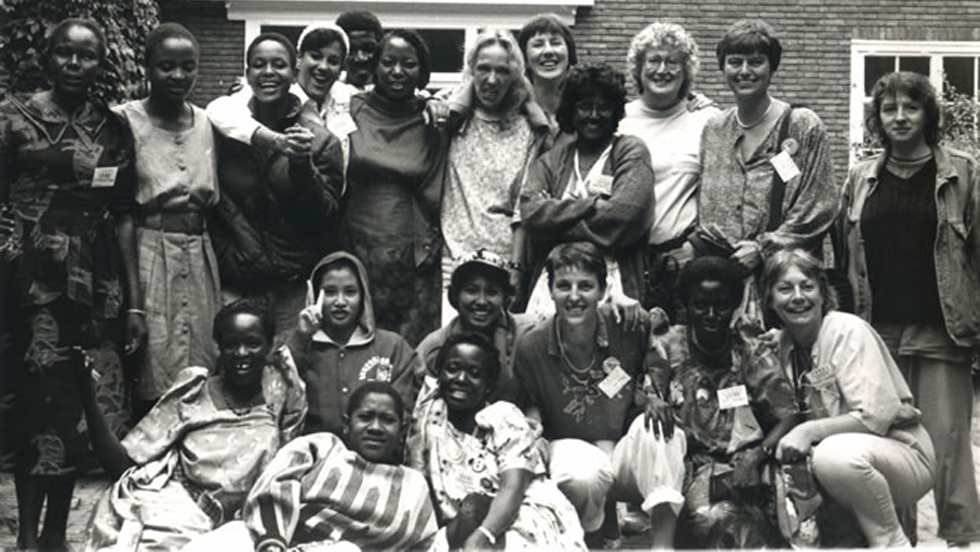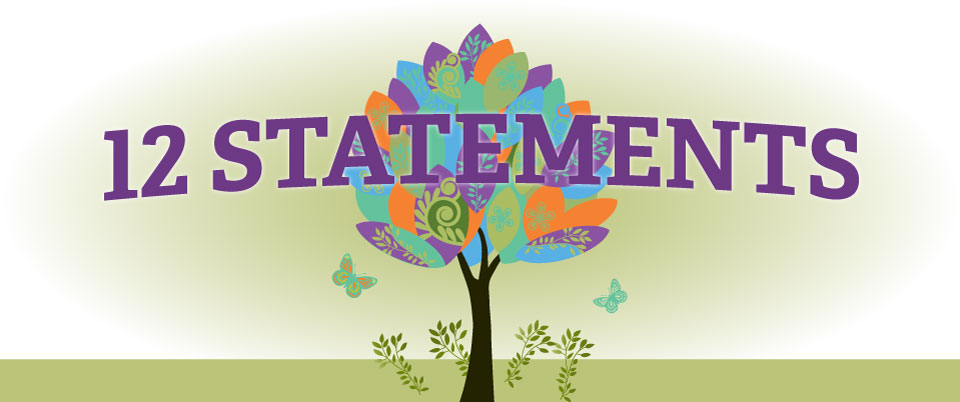
In 1991, there was an international meeting of the global network of people living with HIV/AIDS was held in London, UK. At that time it was a gathering that was predominantly was of and for men. It focused on their realities and discussed only the issues they were facing in relation to HIV.
It was also men who had the power to make all decisions. It was called the ‘gay plague’ as the world wrongly assumed that it only impacted men who had sex with men. Women were left out of all the discussions. They were excluded from the decision making processes and not given space at local, regional and especially not international levels.
Each one of women who went to the meeting in London had their stories to tell, their own questions, their fears and so many uncertainties in relation to their experiences. Many of them came from different countries; spoke different languages, belonged to different cultures. But despite this nothing prevented them from understanding one another and their exclusion they felt from the HIV movement.
It was at this meeting that the women decided that things needed to change and that they needed to mobilize. This was the first time in the history that a group of women got together and used a gender perspective to challenge patriarchy and discuss their experience with HIV.
What grew out of their passion for injustice and being silenced was unveiled at the International AIDS Conference held in Amsterdam in 1992. International Community of Women Living with HIV/AIDS (ICW) was the manifestation of their collective desire to bring the issues of women living with HIV to the center of the discussion.
It was shock to the world as they caught conference attendees by surprise. The women stood up and declared: “Here we are! We have specific needs and we are going to defend our rights.” Because as Jeannine Van Woerkun, active organizer of that meeting, supportive founder of ICW and alley to women living with HIV, stated: “Things need to be done today. It is better to do them right now, today, than to see tomorrow what has not been possible to do…”
Among those women, we remember: Gugu Dlamini from South Africa, who in her attempt to work to stop the spread of the virus said that she was positive and was stoned to death in her community; Mukandoli Chantal from Rwanda; María de Bruyn from Holland; Fiona Pettit, Alice Welbourn and Jo Manchester, Kate Thomson from the United Kingdom; Anita Bolderheij, who suggested the name of the organization; Hannah Jansen, Carmen Terrades from Spain, Araba Mercer, Bev Greet from Australia, Dorothy Onyago from Kenya, Cindy Robins from the United States, and Patricia Pérez from Argentina.
And so the difficult work started. Geographic distance, language, and lack of resources led to many cases of burn out and fatigue during ICW’s growth. But slowly and united the women not only progressed but they expanded as others joined with their voices.
ICW created a central International Support Office (ISO) based in London, UK to help to coordinate the network, look for resources and to create policy documents and resources for the women to use. They established a website www.icw.org (which has not been active since 2009 and is now www.iamicw.org) to be the central information sources and point of contact for women from all around the world. Resources like the ICW Newsletter and the Positive Women’s Survival Kit were created.
Women for the first time were being listened to, as their issues could be silenced no longer. They were requested to be part of the decision making processes and as the network grew so did the needs of the network. ICW created structures to help organize and support the network, including a central governance body, the International Steering Committee (ISC). The ISC is composed of elected members from every ICW region who guide and direct the advocacy priorities of the global work that ICW engages in.
The ISO supported the development and growth of regional and national ICW chapters to ensure that the diverse and specific issues of women on the ground were being addressed. In 2009, the ISC made a decision to move the ISO to the global south and due to the strength of ICW Latina at that time base it in Buenos Aires, Argentina.
The transition caused some struggles within ICW as is common in many developing networks. Despite the struggles new chapters of ICW emerged and asked for support to organize. This included the development of the ICW Chapter for Young Women, Adolescents and Girls (CYWAG) led by a very small group of young women; Jessica Whitbread, Monisola Elizabeth Ajiboye, and Leticia Hoareau.
In 2013, the ISC made a decision to move the Global Office (formally ISO) and to find it a permanent home in Nairobi, Kenya. In March 2014, the ICW Global office closed in Buenos Aires, Argentina and moved. Re-established confidence in the network sparked growth on all levels, including the re-registration of ICW Asian Pacific and the launch of the Central African region.
Today ICW celebrates all the amazing women that contributed to the growth of network and the many amazing advocacy that has been accomplished round the world.
12 Statements
The 12 Statements were agreed during the 1st Meeting of ICW in Amsterdam in 1992. These are the foundations on which the ICW network was built.

- We need encouragement to develop support networks and self-help groups.
- We need the media to portray us realistically and not stigmatize.
- We need easy and affordable access to health care (conventional and complementary) and research into how the virus affects women.
- We need funding for services to lessen our isolation and meet our basic needs. All funds directed to us need to be supervised to ensure that we receive.
- We need the right to be respected and supported in our choices about reproduction, including the right to have or not have children.
- We need the recognition of the right to the attention of our orphaned children and the importance of our role as parents.
- We need education and training to health care providers and the community about the risks in women and our needs. Date and accurate information on all issues affecting women living with HIV should be available easily and free.
- We need the recognition of the fundamental rights of all women living with HIV / AIDS, particularly women in prison, drug user and sex worker. Fundamental rights include housing, employment and travel without restrictions.
- We need research on HIV transmission in women, including transmission from woman to woman; recognition and support for lesbians living with HIV / AIDS.
- We need the power to make decisions and consultation at all levels of policy and programs affecting us.
- We need financial support for women living with HIV / AIDS in developing countries to help them be independent financially and personally.
- WE NEED any definition of AIDS symptoms and specific clinical manifestations of women.
Today
Today, over 20 years later, ICW continues to be the only network run by and for women living with HIV. We work in 120 countries, through 10 regional networks. Go!
The Future
The way forward. Go!